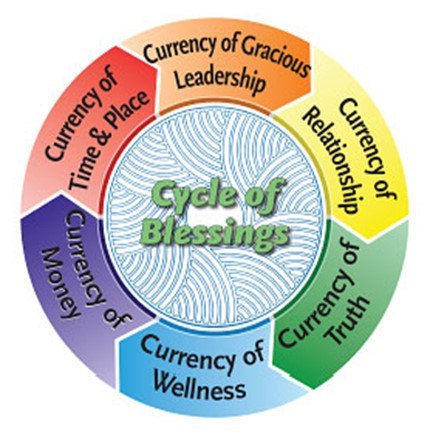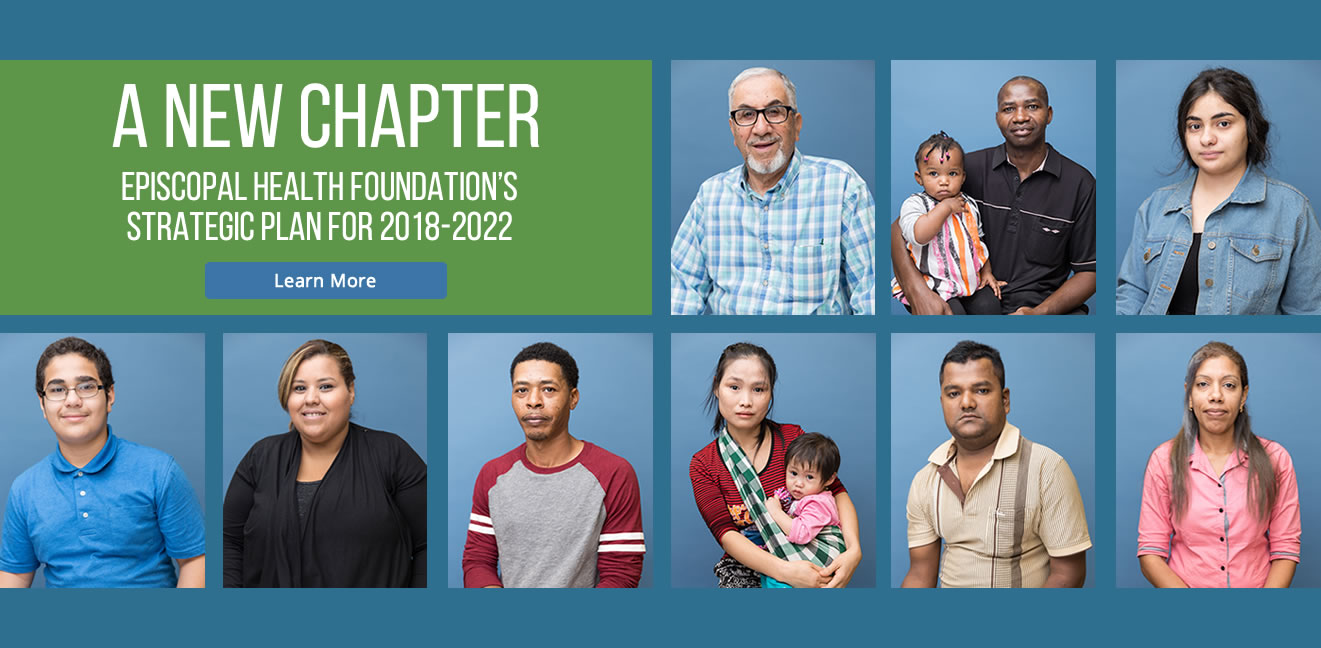Over the past three years, the Episcopal Health Foundation has made building relationships and connecting congregations to opportunities and partners a priority in order to contribute to the health of communities in the Diocese. EHF’s new Strategic Plan identifies three goals for EHF’s work over the next five years and provides a context for our work with congregations:

EHF’s work with congregations is an important part of our goal to activate communities. Within this goal, EHF seeks to raise community voices to actively shape healthy communities and work toward health equity. Congregations can be influential partners in their communities to help address some of the underlying factors that impact health disparities such as poverty and institutional racism.
Opportunities to work with EHF in 2018
EHF offers resources to help congregations move from charity-based outreach ministries to more relational approaches with stronger, lasting impact. These are some of the main opportunities for working with EHF in the coming year:
- Training for developing new sustainable missional ministries through Holy Currencies

EHF has partnered with the Kaleidoscope Institute (KI) to offer an in depth sustainable ministry “incubation” program. Using the Holy Currencies framework developed by KI, congregations can apply to participate in an intensive program that offers training to a team of leaders, coaching, and on-site consultation to develop a new ministry that is responsive to the needs of their community and has a long-term plan for sustainability. The application to participate in the Fall 2019 “cohort” will be available in May 2018.
- Mental Health
Congregations are on the front line of interacting with people experiencing mental illness. Congregations can have a significant impact by helping reduce the stigma associated with mental illness and providing appropriate community support to those affected directly and indirectly by mental health issues.EHF has partnered with Episcopal churches and entities across the diocese to train 894 people in
Mental Health First Aid. This training teaches people about mental illnesses and how to recognize and respond to someone who might be in crisis. EHF is continuing to offer this training in 2018.In addition, EHF will support congregations to
explore next steps in promoting positive mental health in their community. Some congregations are using Living Compass as a tool for supporting healthy communities. Others provide appropriate peer support programs and many congregations are exploring how to become advocates for enhanced access to mental health services in their communities.
- Racial Reconciliation
EHF recognizes that race and health equity are connected. We’re working to develop program work in this area that will help congregations engage in racial reconciliation work and understand how race impacts other work they are doing in communities. EHF is identifying partners and resources that can increase the ability and confidence among our community to engage in conversation about race. Some initial opportunities to join in this work include: - Host a Traces of the Trade Film screening in Fall 2018
- Host a One Human Race workshop
- Develop racial, economic and theological competencies in congregational leaders with Project Curate
- Join a cohort of congregations sharing the work they are doing to engage in conversations around racial reconciliation
- Community Organizing and Civic Engagement
Congregations can help lead efforts to raise the voices of community members to influence community health. EHF seeks to equip congregations to serve as active partners supporting public policies that contribute to community health. EHF can help connect congregations to partner organizations such as The Metropolitan Organization or Austin Interfaith to provide training to deepen relationships in their communities and learn how to address community issues effectively. Other partners like Texas Impact and Mi Familia Vota can offer tools for engagement in public policy and civic engagement. If you are interested in working with one of these community groups, EHF can help you get started.For those just beginning to build relationships with their communities EHF also offers an Activating Community Voices Workshop Series to help you get started.
- Poverty
With the Bridges Out of Poverty program, congregations can gain cultural insights including the hidden rules of class that are often stumbling blocks to relationships and perpetuate prejudices. The trainings create mutuality for churches and community partners and opportunity for greater collaboration around issues and challenges of poverty.EHF can help congregations partner with nearby Title I schools to foster relationships with students and families. Relationships centered on mentoring, tutoring and classroom support leads to increased educational achievements such as improved high school graduation rates and 3rd grade reading levels.
Approaches to poverty relief can also include initiatives around job creation/training, availability of affordable child care and increasing food security. EHF can help get you started in exploring areas of need in your community. Contact us!
Additional Resources
- Training: EHF will support congregation leaders to attend training or conferences to gain skills and insights for developing community engaged ministries
- Financial support: Review EHF’s guidelines for providing limited financial support to congregations to help equip congregations for new ministries
- Consultation and Technical Assistance: Connect with a Congregational Engagement Officer to start a conversation about how to develop or expand transformational ministries. We can be a thought partner.
- Online Resources Center: Our website offers congregational resources with information on health issues and ways to better understand the needs of your community.
- Stay Connected: Join the EHF Church Facebook group and encourage others in your congregation to subscribe to EHF’s Congregation Connection bi-monthly newsletter.
Join the EHF Churches Facebook group for regular updates and announcements on these areas and much more.
For more information on how to get involved or how to partner with us, please contact us.
